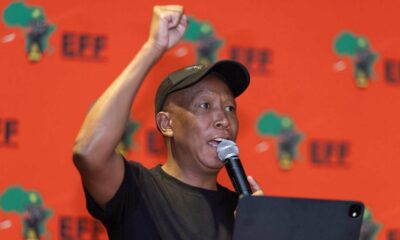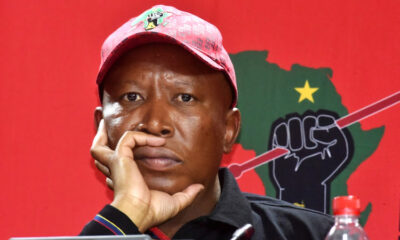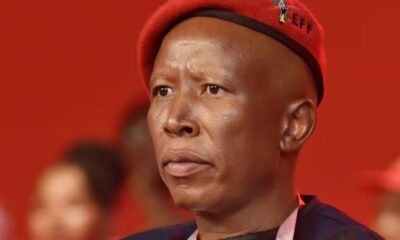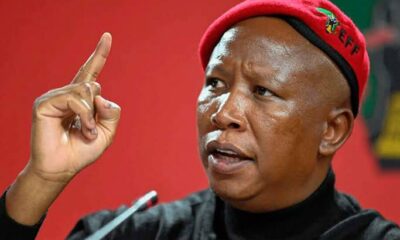News
EFF Takes Fuel Levy Battle to Court: A Fight for the Working Class
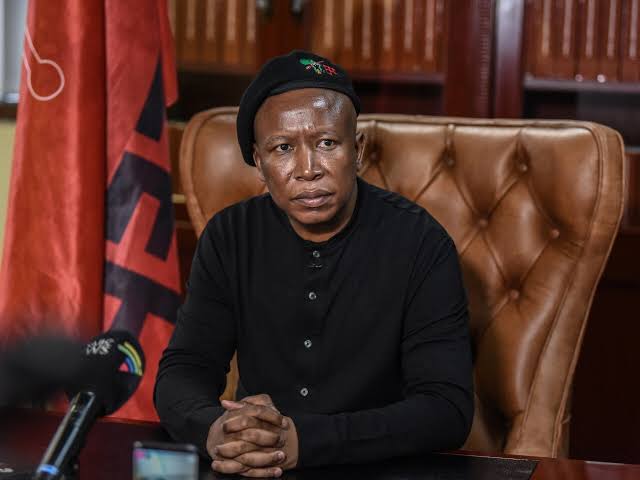
Fuel prices in South Africa are more than just numbers on a board at the filling station. For millions of working-class people, they’re the difference between putting food on the table or not. They shape the price of everything — from bread to bus rides. So when Finance Minister Enoch Godongwana announced in May that petrol and diesel prices would rise again, the Economic Freedom Fighters (EFF) decided to step in — and not just with speeches.
Instead, the red berets are heading straight to court.
What Sparked the Legal Fight?
Godongwana’s Budget 3.0 speech included a 16-cent per litre hike for petrol and a 15-cent jump for diesel, both taking effect from June 4. He called it a necessary move to generate revenue, especially since the previously proposed VAT hike had been shelved. But for the EFF, this was more than just a line item — it was a tipping point.
According to the EFF, the fuel levy increase is an “unjust burden” that falls squarely on the shoulders of South Africans already battling rising living costs. In their court papers filed with the Western Cape High Court, the party says the increase wasn’t just unfair — it was unconstitutional.
No Consultation, No Fairness
The EFF’s legal case, split into two parts, accuses the Minister and Parliament of bypassing basic democratic procedure. Part A of their application seeks to urgently halt the implementation of the fuel hike. Part B goes further, asking the court to strike the proposal down entirely.
In its affidavit, the EFF claims there was no consultation with Parliament, no socioeconomic impact assessment, and no outreach to industries or people who would feel the pain of this decision most. “We appealed to the Minister’s conscience,” they said, “but our calls were ignored.”
The Bigger Picture: Economic Justice or Empty Pockets?
Julius Malema’s party says this isn’t just a legal battle — it’s a moral one. “This levy widens inequality,” their statement argues, “and chips away at poor South Africans’ access to food, transport, and dignity.”
And they’re not wrong about the ripple effect. A fuel price hike doesn’t stay at the pump. It inflates the cost of groceries, public transport, delivery fees, and production costs — making it harder for people to get by. For a country already gripped by unemployment, inflation, and load-shedding, the increase feels like a punch to the gut.
Fuel Levy vs. Fiscal Fix: A National Dilemma
From the government’s side, the fuel levy is a tried-and-tested way to boost revenue. But the EFF argues it’s a lazy option that punishes the wrong people. Instead of taxing working-class commuters, why not tackle wasteful state spending or restructure public finance?
The party believes the state should not balance its books by leaning harder on the poor. They’re demanding that the court intervene — and they’re asking for costs to be awarded against Minister Godongwana, National Assembly Speaker Thoko Didiza, and other key officials.
What Happens Next?
The court will hear the case on Tuesday, and it could set a significant precedent. If the EFF is successful, it may not only roll back the fuel levy hike but force future tax changes to follow a more transparent and consultative process.
For now, though, all eyes are on the Western Cape High Court — and the people who are hoping it brings them relief at the pumps.
Why This Matters to You
This isn’t just about a few cents at the petrol station. It’s about how government decisions affect ordinary people — and who has the power to push back.
Whether you agree with the EFF’s politics or not, their court battle is drawing a line in the sand: no more decisions made behind closed doors that hurt the people most in need of protection.
{Source: The Citizen}
Follow Joburg ETC on Facebook, Twitter , TikTok and Instagram
For more News in Johannesburg, visit joburgetc.com

